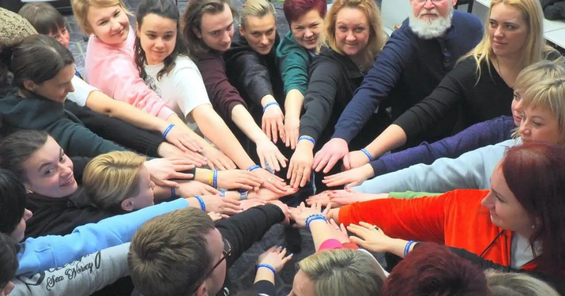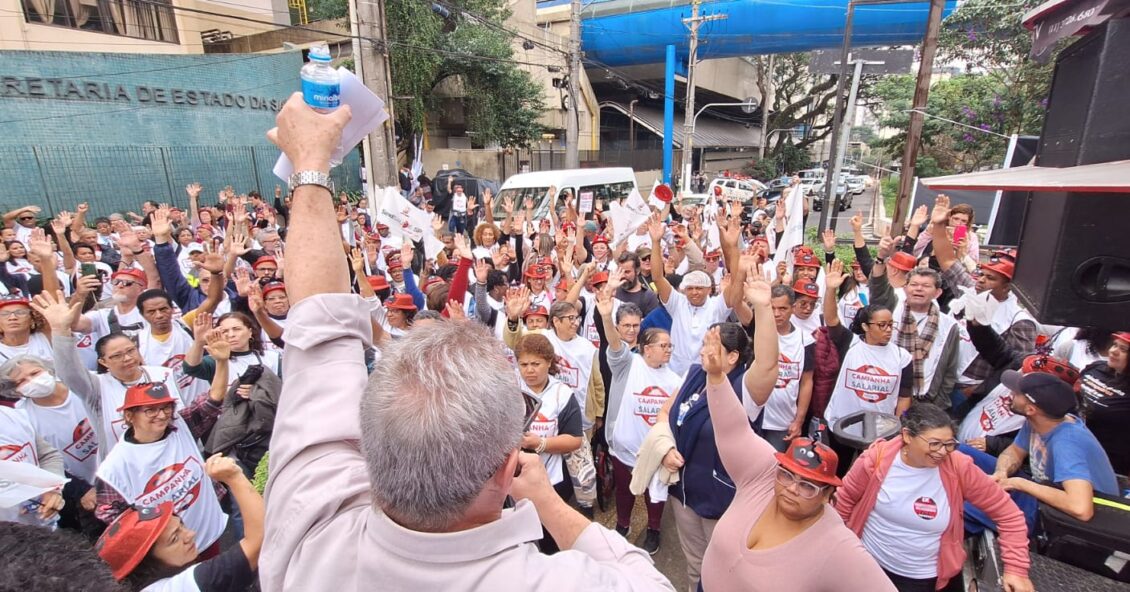Supporting healthcare workers in Ukraine organizing in war
17.03.23
Health workers in Ukraine continue to stand up for their rights, fight injustice and build their trade union, despite the constraints of martial law, the constant threat of bombardment, and the added pressures of working in the healthcare profession during a time of war.
Unions Help Refugees (UHR), which was set up by COZZ, UNI Global Union’s regional organizing centre in Poland, hosted a meeting for 20 leaders and members of Be Like Nina – a grass-roots mobilization of healthcare workers which began before the war and has since grown into a labour movement and trade union.
The meeting, which took place over three days, provided training on trade union strategies and included workshops with two UHR psychologists who shared strategies on dealing with the mental strain of living and working in wartime.
UHR heard first-hand the day-to-day toll the war is having on nurses and doctors. Many said their trip to Poland was the first time they had slept soundly since the Russian invasion in February 2022. Some areas in Ukraine have daily air raid warnings and knowing that there could be a rocket attack at any time is hard.
Healthcare workers reported common symptoms of anxiety, fatigue and reduced concentration brought on by the strain of war and heavy workload. Some participants said they felt their emotions were ‘frozen’ due to the traumatization of the war. One nurse said her stress levels are so high, her hands shake and she has problems focusing, making it difficult to carry out x-rays she has been doing for 30 years with the necessary precision. Her anxiety is compounded by the worry that she will be reprimanded by her employers.
Job security is a big fear for workers in the healthcare sector as they know they can easily be replaced by other health workers who have been displaced and are out of work. The workers report shadowy wage policies and an unequal status between nurses versus doctors, with nurses being used as scapegoats for medical mistakes and accusations of bullying by some doctors and employers. Furthermore, wages were already very low in the sector, but now with prices rising due to the war, it is even harder to make ends meet.
To add to the challenges facing healthcare workers, MPs voted to legalize zero-hours contracts in July last year, and passed legislation that will remove 70 per cent of the country’s workforce from protections guaranteed by national labour law. Martial law has also increased maximum working time from 40 hours to 60 hours and the weekly minimal rest period has been reduced to 24 hours.
However, the activists from Be Like Nina are not afraid to fight back. The movement began in November 2019 when Nina Kozlovska, who was present at the UNI meeting, listed her frustrations with the government’s empty promises to fix the poor working conditions and low pay in the sector on Facebook, prompting other doctors and nurses to contribute their own difficult experiences.
Now it is a mass movement of 80,000 people that is standing up for workers and getting the attention of employers and government alike. They have successfully fought for reinstatement of health workers who were fired illegally, held several demonstrations before the war and are pushing for fairer pay.
BLN Co-founder Oksana Slobodiana, said:
“It used to be only employers and government discussing policies, medical workers had no influence whatsoever, and they used to put a lot of psychological pressure on us. But this is changing, as they are starting to take notice of the movement and are starting to listen to our demands, as it’s a pretty big movement of medical workers.”
The war has displaced many health workers, both internally and externally, with some forced to flee Ukraine and others spending several months working in the country and then abroad again. As well as the healthcare refugees in Poland, through the training UHR has begun to assist workers both sides of the border.
Rafal Tomasiak, COZZ Director said:
“It was a unique, emotional and rewarding experience to hear and see how valuable this training was for those brave (mainly) women. It’s very gratifying to know that they left the meeting highly motivated to continue building their union despite such adversity. There is a clear link between the help UHR programme have been providing over last 12 months in Poland, as there are members of the Be Like Nina movement currently working here (and other countries in Europe). We are proud that UHR has developed yet another way to support these amazing workers and their unions.”
UNI General Secretary, Christy Hoffman added:
“UNI is proud to support the efforts of these courageous healthcare workers in Ukraine as they continue to fight for their rights despite the trials and trauma of war. It’s good to see that our Unions Help Refugees programme is able to both assist workers that have been forced to flee the country, and to support healthcare workers organizing in Ukraine.”
The COZZ training took place in Poland from 24-26 February 2023.
News


